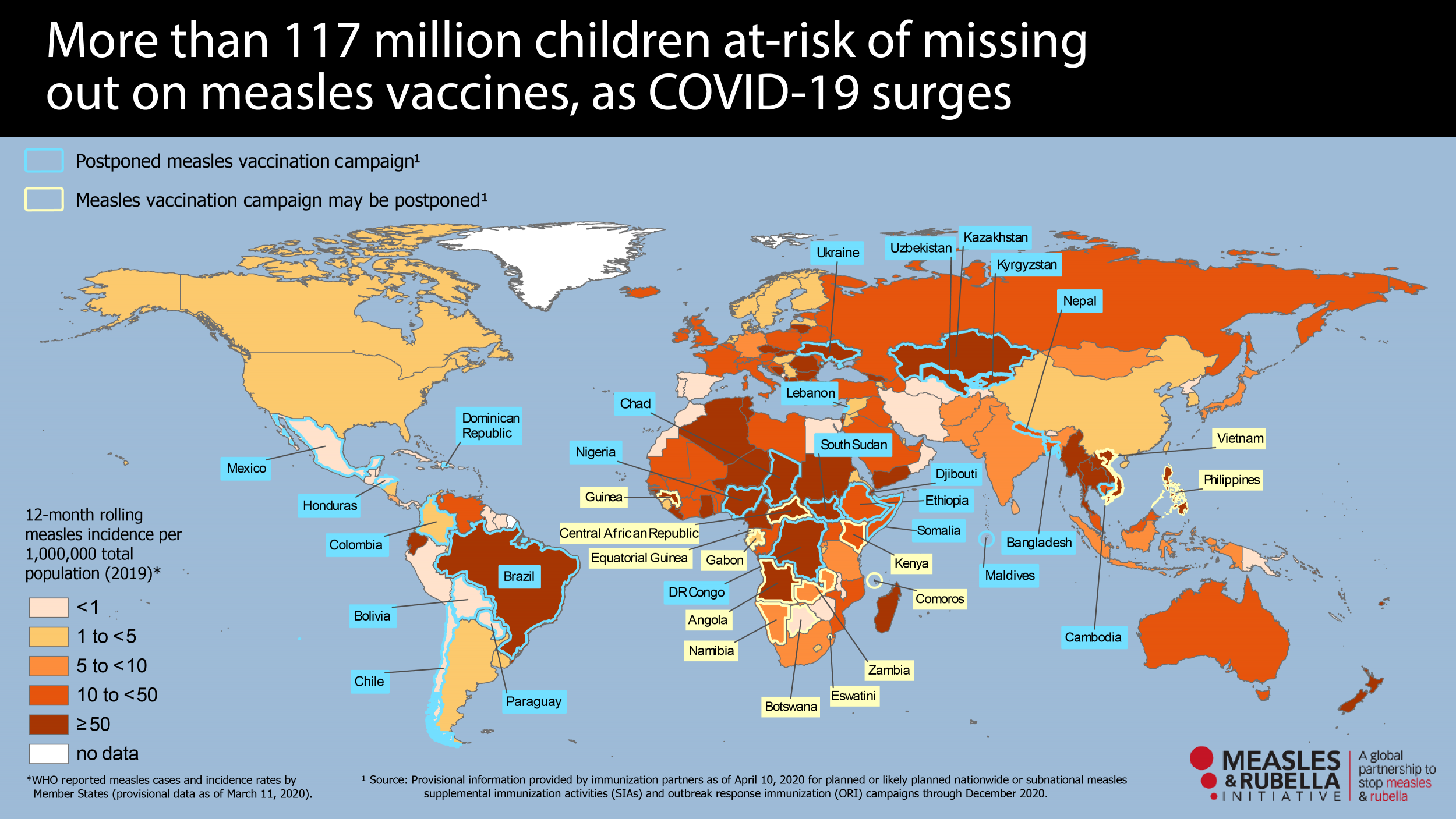Coronavirus: Millions of children at risk from measles as vaccination programmes stopped during pandemic
More than 117 million children could miss out on immunisation, warns WHO

Your support helps us to tell the story
From reproductive rights to climate change to Big Tech, The Independent is on the ground when the story is developing. Whether it's investigating the financials of Elon Musk's pro-Trump PAC or producing our latest documentary, 'The A Word', which shines a light on the American women fighting for reproductive rights, we know how important it is to parse out the facts from the messaging.
At such a critical moment in US history, we need reporters on the ground. Your donation allows us to keep sending journalists to speak to both sides of the story.
The Independent is trusted by Americans across the entire political spectrum. And unlike many other quality news outlets, we choose not to lock Americans out of our reporting and analysis with paywalls. We believe quality journalism should be available to everyone, paid for by those who can afford it.
Your support makes all the difference.The number of measles infections around the world could surge in the wake of coronavirus as countries are forced to suspend vaccination programmes.
The World Health Organisation (WHO) has said it fears more than 117 million children could miss out on being vaccinated against measles, which killed 140,000 people in 2018.
Officials worry that 37 countries where the deadly virus is a major threat could delay immunisation programmes, with 24 countries already suspending their efforts as attention is focused on containing and preventing the spread of Covid-19.
A joint statement from the WHO, the American Red Cross, US Centres for Disease Control, Unicef, and the UN Foundation warned: “Despite having a safe and effective vaccine for over 50 years, measles cases surged over recent years and claimed more than 140,000 lives in 2018, mostly of children and babies – all of which were preventable.
“Against this already dangerous backdrop, preventive and responsive measles vaccination campaigns have now been paused or postponed in 24 countries to help avert further spread of Covid-19. Campaigns expected to take place later in 2020 in an additional 13 countries may not be implemented.
“Together, more than 117 million children in 37 countries, many of whom live in regions with ongoing measles outbreaks, could be impacted by the suspension of scheduled immunisation activities. This staggering number does not include the number of infants that may not be vaccinated because of the effect of Covid-19 on routine immunisation services. Children younger than 12 months of age are more likely to die from measles complications, and if the circulation of measles virus is not stopped, their risk of exposure to measles will increase daily.”
The 24 countries that have postponed measles vaccination campaigns are: Bangladesh, Brazil, Bolivia, Cambodia, Chad, Chile, Colombia, Djibouti, Dominican Republic, DRC, Ethiopia, Honduras, Kazakhstan, Kyrgyzstan, Lebanon, Maldives, Mexico, Nepal, Nigeria, Paraguay, Somalia, South Sudan , Ukraine, and Uzbekistan.
Some countries like Brazil, Bangladesh, DRC, South Sudan, Nigeria, Ukraine and Kazakhstan are fighting large measles outbreaks. For example, in DRC the virus has killed more than 6,000 people.

The WHO has published new advice for countries to help try and sustain vaccination schemes during the coronavirus pandemic, suggesting that countries with no active outbreaks should temporarily pause preventative vaccination schemes.
Where schemes are paused, at-risk unvaccinated children should be tracked to make sure they an be protected against measles as soon as possible.
It added: “Urgent efforts must be taken now at local, national, regional and global levels to prepare to close the immunity gaps that the measles virus will exploit, by ensuing that vaccines are available, and that they reach children and vulnerable populations, as quickly as possible, to keep them safe.”
Join our commenting forum
Join thought-provoking conversations, follow other Independent readers and see their replies
Comments